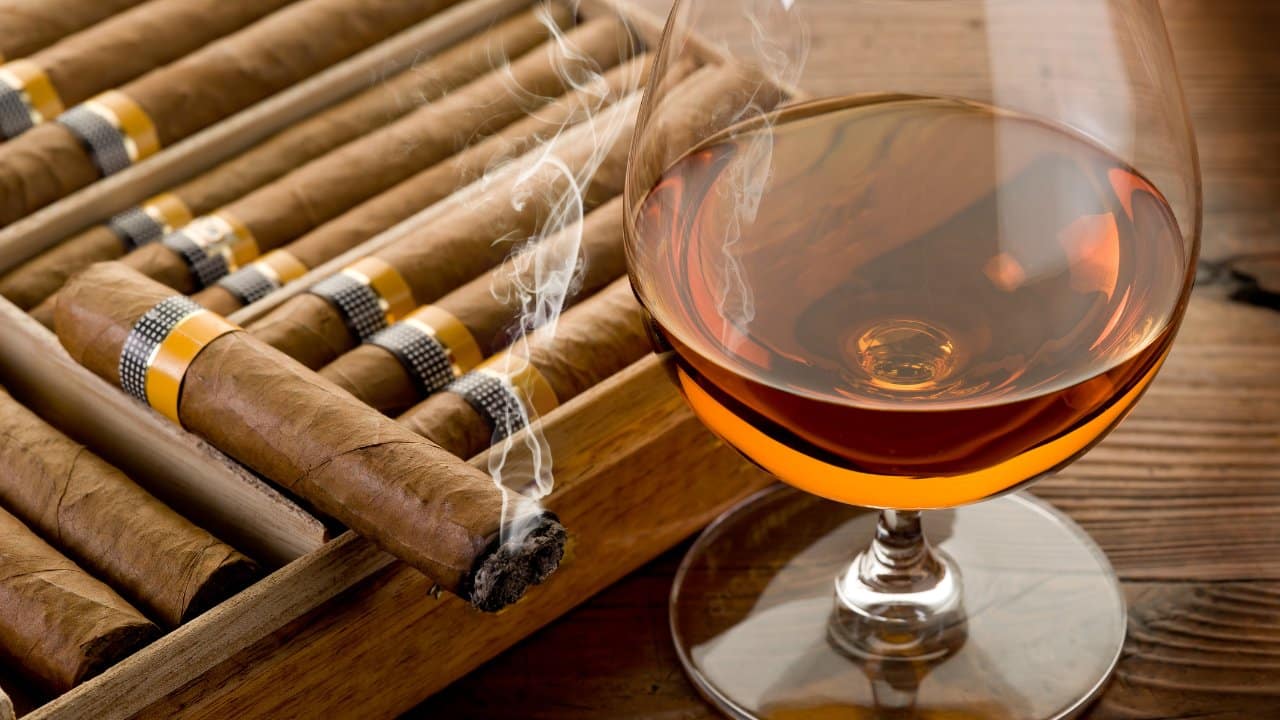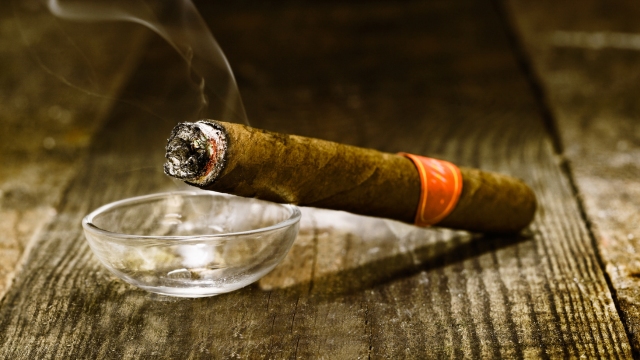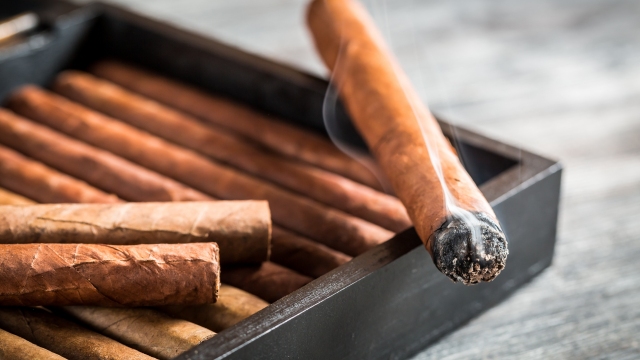Cuban cigars have long been the epitome of luxury and refinement, renowned for their unparalleled quality and craftsmanship. Yet, despite their prestigious status, these cigars remain shrouded in mystery and illegality in some countries, particularly the United States. This enigmatic reputation raises the question: why are Cuban cigars illegal?
Cuban cigars are illegal due to the US embargo against Cuba, initiated in 1962. The ban aimed to pressure Cuba’s government and isolate Fidel Castro’s regime, forbidding Cuban imports, including tobacco. This addresses the question as to why Cuban cigars are illegal.
We’ll explore the intriguing history and complex legal landscape that surrounds these coveted tobacco treasures, unveiling the truth behind the ban.
Key Takeaways
- Cuban cigars have a rich history, beginning in the 15th century and shaped by colonialism and revolution.
- The US strict trade embargo against Cuba has had lasting effects on Cuban cigar possession and importation into the US.
- Despite its challenges, Cuban cigars remain a prestigious luxury tobacco product with an important role in cultural diplomacy.
Why Are Cuban Cigars Illegal In The United States?
Cuban cigars are illegal in the United States due to the trade embargo imposed by the United States on Cuban imports.
However, the trade embargo imposed by the United States has rendered cigars illegal within its borders, making them a highly sought-after commodity among cigar lovers worldwide. In fact, many people are not aware that Cuban cigars are illegal in the US due to this trade embargo.
Historical Context of Cuban Cigars
The history of tobacco use in Cuba traces back to the 15th century when Christopher Columbus first visited the island and discovered tobacco. Even before Columbus’ arrival, the native Taíno people had been smoking tobacco. Soon after, the Spanish began cultivating tobacco crops in Cuba and established the first cigar factory in 1542. This marked the inception of Cuba’s tobacco industry, which would eventually lead to the legendary Cuban cigar.
Furthermore, colonialism played a significant role in shaping the industry, enabling the spread of tobacco to Europe and the emergence of non-Cuban cigar industries.
However, the Cuban Revolution had a profound impact. It triggered a migration of Cuban cigar manufacturers to other Caribbean countries and facilitated the spread of Cuban-seed tobacco. This mass exodus led to a brain drain in the Cuban cigar industry, ultimately giving rise to alternative cigar-producing regions.
The Rise of Cuban Cigars as a Luxury Commodity
Cuban cigars became popular in the early 1800s when the first cigar factories were opened in the country. The unblended and preservative-free nature, combined with the ideal Cuban climate and soil conditions, contributed to their high regard. Furthermore, the spread of tobacco to Europe, which quickly gained popularity, was largely attributable to Spanish colonization.
Moreover, the Taíno people, the indigenous inhabitants of Cuba, were instrumental in the early usage of tobacco in the Caribbean. As the cultivation began during the period of Spanish colonization, the industry grew rapidly, eventually culminating in the birth of the luxury Cuban cigar.
Presently, Cuban cigars are highly sought after by cigar lovers worldwide, symbolizing a rich and storied history of craftsmanship and tradition.
Political Landscape: From Colonialism to Revolution
The nationalization of Cuba’s cigar industry and the exile of many renowned Cuban tobacco and cigar men, which marked a turning point for the cigar industry, were direct outcomes of the Cuban Revolution.
This mass migration of cigar manufacturers to other countries, such as the Dominican Republic, Honduras, and Nicaragua, facilitated the spread of Cuban-seed tobacco and paved the way for the expansion of non-Cuban cigar industries.
Additionally, the changing political landscape had ramifications on the legality of Cuban cigars in the United States. The Obama administration eased the requirements of the trade embargo, allowing travelers to bring Cuban cigars back a limited amount for personal consumption. However, in 2020, President Trump strengthened the embargo, prohibiting Cuban imports.
The US Embargo Against Cuba and Its Impact
The US embargo against Cuba, implemented in February 1962, aimed to diminish the influence of Fidel Castro’s Communist regime during the Cold War. As a result, Cuban cigars became illegal in the United States, and their importation and sale remain prohibited to this day.
The Trade Embargo Against Cuba Explained
The Cuban cigar embargo dates back to 1962, when President John F. Kennedy issued a proclamation prohibiting the import of all goods and commodities from Cuba, including Cuban tobacco. This was part of his effort to pressure Cuba’s government into a more helpful relationship with the United States.
Furthermore, this embargo was part of a larger effort to isolate and apply pressure on Fidel Castro’s communist regime, the Cuban government, foster political change, encourage the Cuban government to improve human rights, and transition to democracy.
Over the years, it has evolved, with different administrations taking varying stances on its enforcement. During the Obama administration, travelers could bring Cuban cigars back up to $100 worth for personal consumption, which relaxed the embargo.
However, the Trump administration later strengthened it, prohibiting the importation of the cigars for all Americans. Consequently, the trade embargo remains a significant factor in the complex legal landscape surrounding Cuban cigars in the US.
The Evolving Legality of Cuban Cigars in the US
Changes in US policies and administrations have led to shifts in the legality of Cuban cigars over time. The trade embargo was eased under the Obama administration, allowing travelers to bring back a limited amount for personal consumption. However, the subsequent Trump administration later tightened the embargo, making the importation illegal again for Americans.
Consequently, this fluctuating legal landscape has left the status of Cuban cigars in the US uncertain. They remain illegal in the country, and their importation and sale are prohibited. Notably, travelers returning from Cuba or countries that trade freely with Cuba, such as Mexico and Canada, are not allowed to bring Cuban cigars into the US.
The Complexities of Cuban Cigar Legality
International laws and restrictions also impact the import and distribution of authentic Cuban cigars, extending the intricacies of legality beyond the United States. For instance, it’s generally prohibited to import them due to international trade restrictions and embargoes.
International Laws, Loopholes, and Restrictions
Individuals subject to United States jurisdiction in buying Cuban cigars online for personal consumption, nevertheless, there are restrictions and limits on importation. Notably, the current regulations allow for the importation of up to $100 worth of Cuban cigars, Cuban rum, or a combination of both for personal consumption.
Furthermore, these regulations apply to licensed U.S. travelers to Cuba; however, it’s important to note that it’s still illegal for a United States citizen to purchase, consume, or import any Cuban products from anywhere in the world.
On the other hand, in other countries, the procedure for importing Cuban cigars varies, with some allowing Cuban cigars to be imported for personal consumption, provided that the applicable duty and tax exemptions are observed.
However, it’s crucial to highlight that commercial importation is not allowed in the United States. Given that regulations may differ, it’s strongly recommended to ascertain the specific laws of each country for importing Cuban cigars.
The Consequences of Violating Embargo Laws
Severe penalties when caught with Cuban cigars, including substantial fines and incarceration, can result from violating trade embargo laws by smuggling or illegally possessing authentic Cuban cigars in the US. However, the exact penalties may vary based on the specifics of the case, but they can be quite significant, with fines reaching up to $55,000 for attempting to smuggle Cuban cigars into the US.
Moreover, enforcement of illegal possession is conducted by agencies such as the Bureau of Alcohol, Tobacco, Firearms and Explosives (ATF) and the U.S. Customs and Border Protection (CBP). Consequently, violations of trade and travel restrictions may result in legal consequences, making it crucial for cigar enthusiasts to be aware of the laws and regulations.
Also Read: How to Keep Cigars Fresh: Expert Tips for a Flawless Smoke
The Cuban Cigar Industry Today
The current global market status of Cuban cigars is characterized by decreased supply and scarcity in markets around the world. Prices have also been escalating, even in Cuba itself. Despite these challenges, the overall global cigar market is projected to expand by 4.17% by 2028. As demand for luxury cigars rises, they’re likely to uphold their status as a coveted and prestigious selection among cigar smokers.
Current Global Market Status
Cuban cigar tourism plays a significant role in the industry, contributing to Cuba generating an annual revenue of more than $500 million from sales. Additionally, its allure has attracted tourists from around the world who are eager to experience the authentic craftsmanship and rich history of these luxury tobacco products. Consequently, this influx of tourists has helped bolster the Cuban economy, contributing to the country’s overall financial stability.
Moreover, global health concerns have also had an impact on the cigar market. For example, the COVID-19 pandemic caused disruptions to supply chains and shortages of raw materials. As a result, these challenges have forced cigar manufacturers to adapt and find new ways to maintain their production levels and meet the growing demand for luxury Cuban cigars.
Nevertheless, despite these setbacks, the market remains strong, with many cigar smokers willing to pay a premium for the unmatched quality and flavor of these iconic tobacco products. In fact, buying Cuban cigars online has become a popular method for enthusiasts to acquire these sought-after items, while some opt to sell non-Cuban versions as an alternative.
Cuban Cigar Alternatives and Competitors
The rise of alternative cigar industries in countries such as the Dominican Republic has given consumers more options when it comes to enjoying a high-quality smoking experience. Additionally, these non-Cuban versions, while not offering the same authentic experience, still provide a high level of craftsmanship and flavor that appeals to enthusiasts. Consequently, this has led to the development of a thriving market for non-Cuban cigars, with brands from the Dominican Republic, Nicaragua, and Honduras gaining prominence.
Furthermore, the presence of duplicate brands and trademark issues has further complicated the landscape of the Cuban cigar industry. For instance, counterfeit Cuban products, often made with substandard materials and lacking authentic craftsmanship, can be found in markets around the world.
This has created challenges for consumers and the cigar industry as a whole, as they must navigate the intricacies of counterfeit Cuban products and trademark disputes while attempting to enjoy the luxury and prestige of genuine Cuban cigars.
The Future of Cuban Cigars
Potential legal and political changes, which could have a significant impact on the industry, leave the future of Cuban cigars uncertain. If, hypothetically, the prospect of the US embargo being lifted or amended could open up new markets for Cuban cigars, allowing them to be legally imported and sold in the United States. Moreover, internal reforms in Cuba could bring about change and improve the overall climate for the industry.
Potential Legal and Political Changes
The future of the US embargo on Cuban cigars remains uncertain, with potential modifications and alterations to the trade embargo being discussed. Hypothetically, if it were to be lifted or amended, the cigars could become legally available in the United States, opening up new markets and opportunities for the industry.
Nevertheless, any implementation of these changes would require approval from Congress, making the outcome uncertain.
Moreover, changes in the political climate in Cuba could also have repercussions. The possibility of internal reforms and the potential impact of climate change on Cuban tobacco cultivation could significantly affect production.
As the industry adapts to these changes, the future of Cuban cigars will likely continue to be shaped by the evolving legal and political landscape in Cuba and on the international stage.
Cuban Cigars in Cultural Diplomacy and Global Trade
Serving as a symbol of Cuban culture and heritage, Cuban cigars have long played a significant role in international relations and cultural exchanges. Notably, Cuban cigars have been used in official tourism campaigns and confidential diplomatic efforts to improve relations between nations, effectively showcasing the unique craftsmanship and history of these luxury Cuban tobacco products.
Moreover, as the global cigar market continues to expand, with projections indicating a market size of billions of dollars and a compound annual growth rate ranging from 7.80% to 13.3%, Cuban cigars are expected to remain prominent. Undoubtedly, as demand for luxury cigars rises, they’re likely to uphold their status as a coveted and prestigious selection among cigar smokers.
Additionally, some entrepreneurs who set up a hookah bar offer Cuban cigars. So, when you visit a hookah bar in the near future, feel free to ask if they offer this heavenly delight of smoke.
Also Read: Why Don’t You Inhale Cigars and What You Should Do Instead: A Complete Guide
Final Thoughts
The Cuban cigar industry has navigated a complex and storied history shaped by political upheaval, legal restrictions, and global demand. Despite the challenges, they remain a symbol of luxury and tradition, with their unparalleled craftsmanship and captivating cigar lovers worldwide. As the global cigar market evolves, its allure continues to enthrall.
Related Questions
Still have questions? Check out a couple of common ones below.
What is so special about Cuban cigars?
Cuban cigars are renowned for their unique flavor, derived from the island’s fertile soil and rich nutrients. Vuelta Abajo is especially known for its magnesium, calcium, and iron, which add a distinct sweetness to Cuban cigars.
Why are Cuban cigars illegal in the UK?
Authentic Cuban cigars are not illegal in the UK and can be brought back in limited amounts with duty fees. However, no one is likely to pay full price for Cuban cigars without assurance of authenticity like what official tobacconists can provide.






